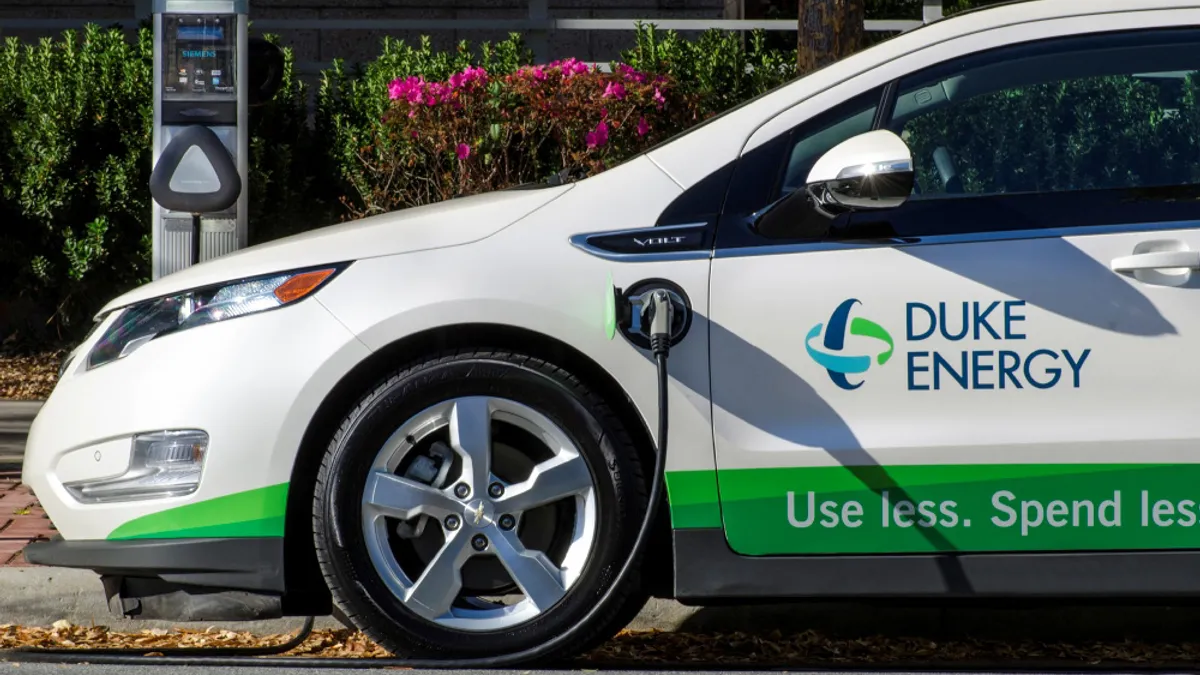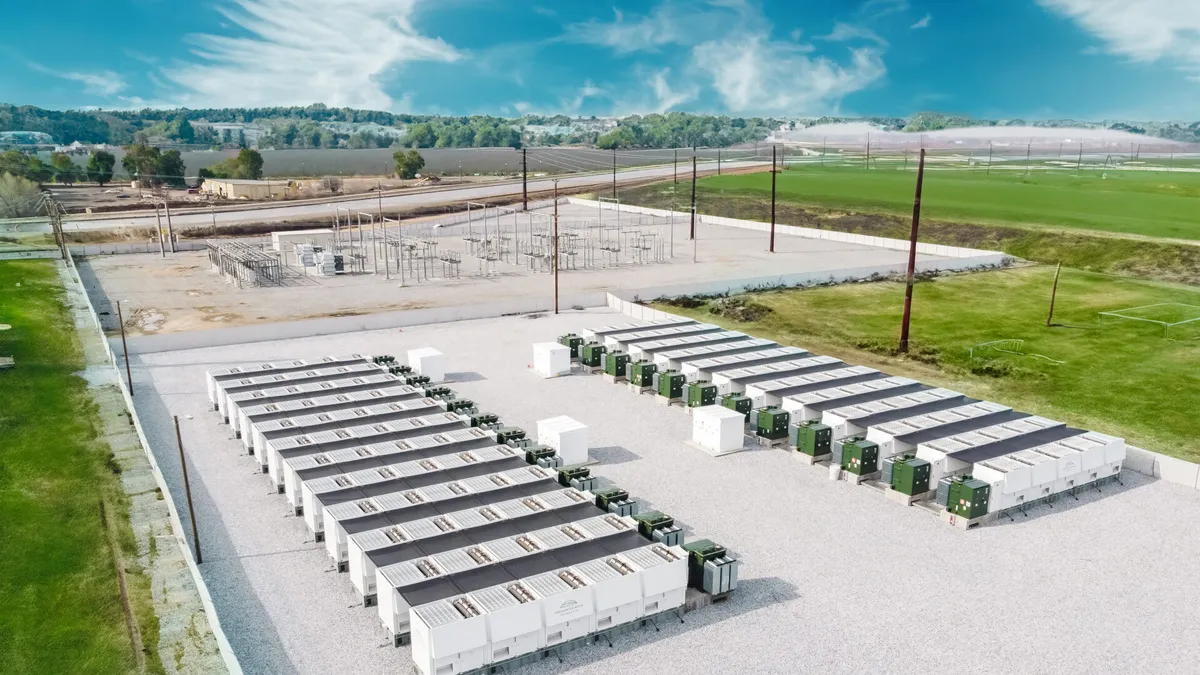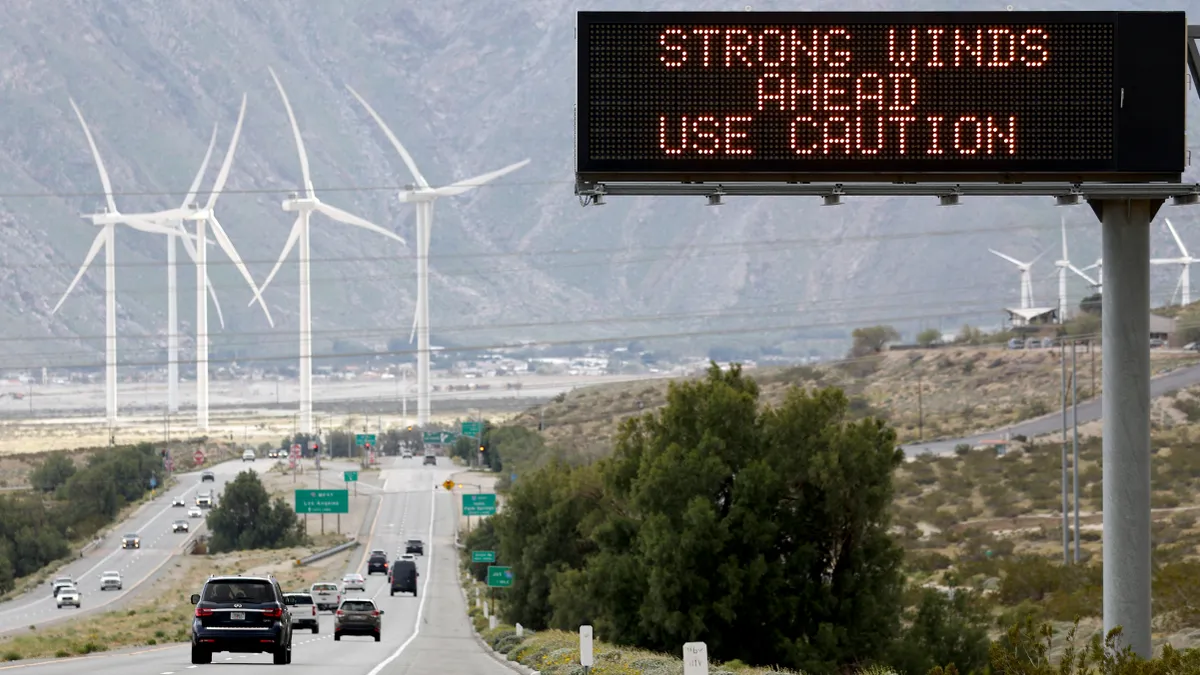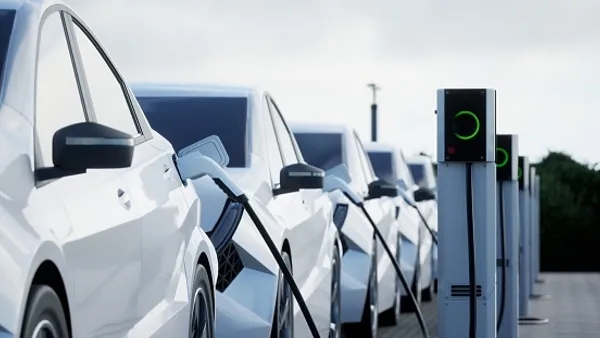The North Carolina Utilities Commission (NCUC) on Nov. 24 approved a $25 million electric vehicle (EV) pilot that allows Duke Energy to install and own 280 charging stations and includes an electric school bus program.
While the program authorized by regulators was smaller than Duke's $76 million proposal, experts say the decision still authorizes the largest utility EV investment in the Southeast to date, and paves the way for more investment in electrified transportation in the state and region.
The commission order also launched a stakeholder process that opens the door for Duke to propose larger programs. And there are other EV programs in various stages of development across the Southeast, reflecting a trend that clean energy advocates see building nationally.
"We're at a moment in time when there seems to be momentum," said Dionne Delli-Gatti, director of regulatory and legislative affairs for Southeast climate and energy issues at Environmental Defense Fund (EDF). "You have support from the auto industry to move forward with many of these technologies. Ensuring there is a foundation of infrastructure and policies that support this evolution of our transportation industry is going to be really important."
North Carolina regulators move deliberately
The program NCUC approved last week cut more than 2,000 charging stations Duke proposed in April 2019, but utility officials say it is no surprise that the state wants to move deliberately.
"We proposed a pretty comprehensive portfolio," said Lang Reynolds, Duke's director of electrification strategy. In total, the original project design included about 2,500 charging stations as well as the conversion of public transit buses.
"In some ways, it's not surprising the commission would want to take it stepwise, and proceed with smaller programs before going full-bore," said Reynolds.
Clean transportation advocates say the initial North Carolina program is a good start and bodes well for the region.
Though it's scaled back, Duke's EV program "still represents the largest utility investment in the Southeast, both in terms of program scope and dollars," said Stan Cross, electric transportation policy director at Southern Alliance for Clean Energy.
The commission authorized Duke to install, own and operate 160 Level 2 charging stations at public destinations, where the company says it plans to "collect utilization and other load characteristics to understand potential grid and utility impacts." Duke will also install, own and operate 40 public Direct Current Fast Charging stations throughout North Carolina, and 80 Level 2 charging stations at multifamily dwellings.
The plan also calls for replacing 30 older, diesel school buses with electric models. Duke will provide funding of $215,000 per bus on a first-come, first-served basis to school districts.
The order also answers some important questions regarding market buildout, said Cross, and will be studied by other regulators in the region. It "takes off the table the question whether or not investor-owned utilities would be allowed to participate in building out the [charging] market, and that is really helpful for moving other opportunities."
Duke is better-positioned to install chargers in apartment buildings, said Lang, and the utility's ability to build out the market will dovetail with the Volkswagen emissions settlement and "helps those dollars stretch further."
Equity, rate design questions to be addressed in stakeholder process
Looking beyond the pilot, advocates say the NCUC order is important because it launches a stakeholder process to consider how to build out infrastructure and will provide opportunity to discuss issues of rate design and equity.
"One of the things we're most excited about is the opportunity to really dial in on what needs to be done from a rate design perspective and how we can really build a system that supports deep EV penetration in a meaningful time period," said Delli-Gatti.
Duke will kick off the stakeholder process in December, and the NCUC wants recommendations to be developed within six months.
Equity challenges include getting chargers into low- and moderate-income (LMI) neighborhoods so that electrified transportation can benefit all customers.
"The challenge with equity is it's harder to get private financing for charging in those neighborhoods because it's not going to pay off right away," said Plug in America Executive Director Joel Levin. "It's more appropriate for utilities to invest that money because they can have a longer timeframe on their payback."
Duke did face some criticism for not including specific equity-focused proposals in its plan, but the utility says those issues are addressed in other ways.
"It's pretty hard to do everything in a program," said Reynolds. "We think the overall argument for electrification benefits all customers by putting downward pressure on rates. ... we also have individual components, like the school bus program, that crosses a broad section of customers and cuts down on diesel pollution" which disproportionately hits LMI neighborhoods.
Excitement growing for EVs in Southeast, nationally
The NCUC approval comes at a time when electric vehicles are gaining traction in the Southeast and advocates see the potential for policies to advance adoption nationwide.
In October, regulators approved Duke's $10 million EV charging pilot in South Carolina. The utility also has an ongoing program in Florida and a pending program in Ohio. Roanoke Electric Cooperative in North Carolina on Monday announced a pilot to study vehicle-to-grid integration. And there are EV manufacturing and supply chain facilities in Tennessee, Georgia and other states, said Levin.
"The Southeast has a lot of EV potential," said Levin.
Nationally, there is excitement for EV potential under a Joe Biden administration. The president-elect has called for installing 500,000 electric charging stations nationwide, and EDF on Monday rolled out an advertising campaign to promote clean transportation and clean energy policies, beginning with ad buys in Florida, Nevada, Colorado, Arizona and Ohio.
"Biden seems to have a very high level of commitment to EVs and clean energy in general, which is really exciting," said Levin. "I think there's a potential here to tackle EVs and clean energy as kind of a big national vision along the lines of the Apollo program or the New Deal, something that can be a vision for the country going forward to rebuild economy and put people back to work."






















